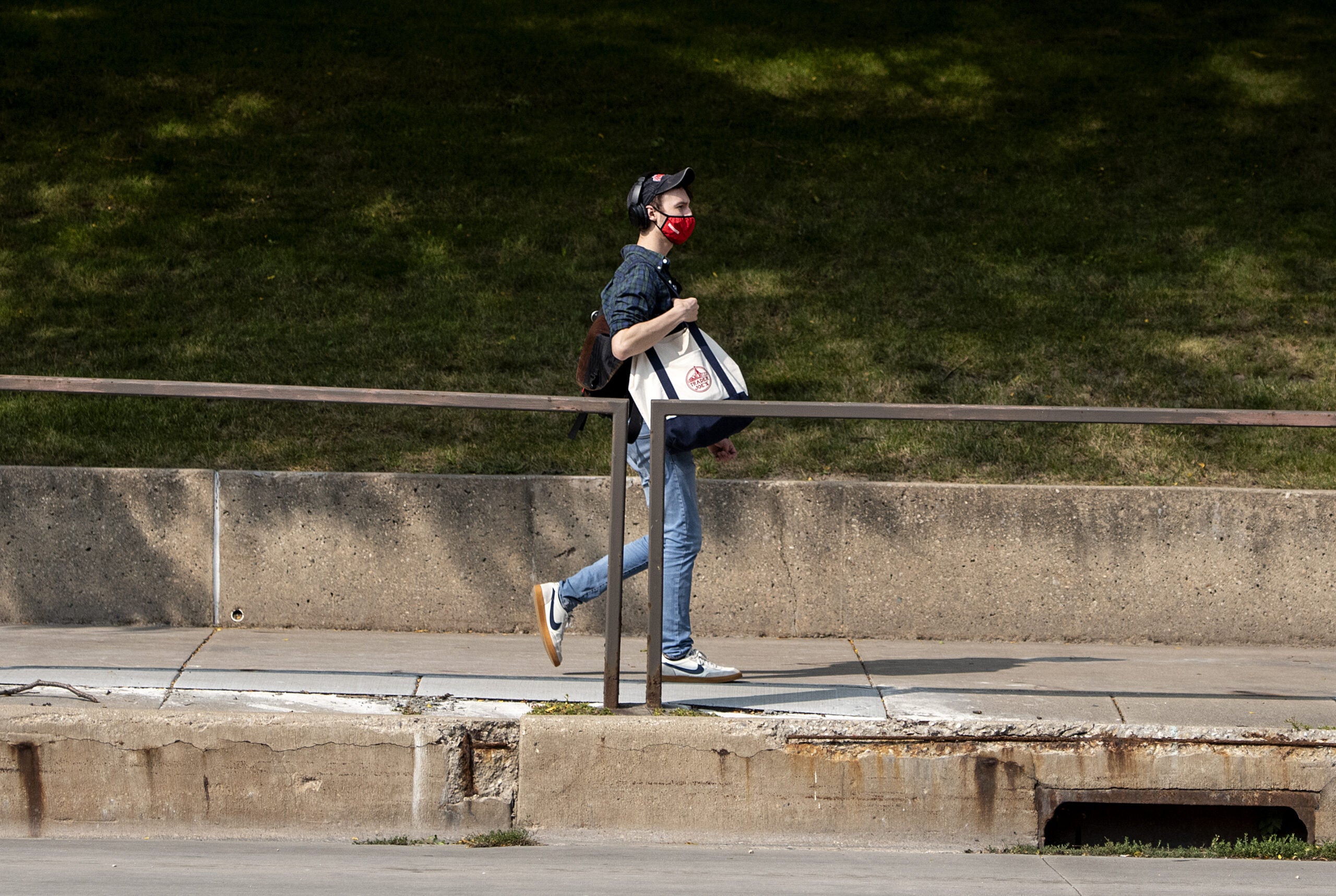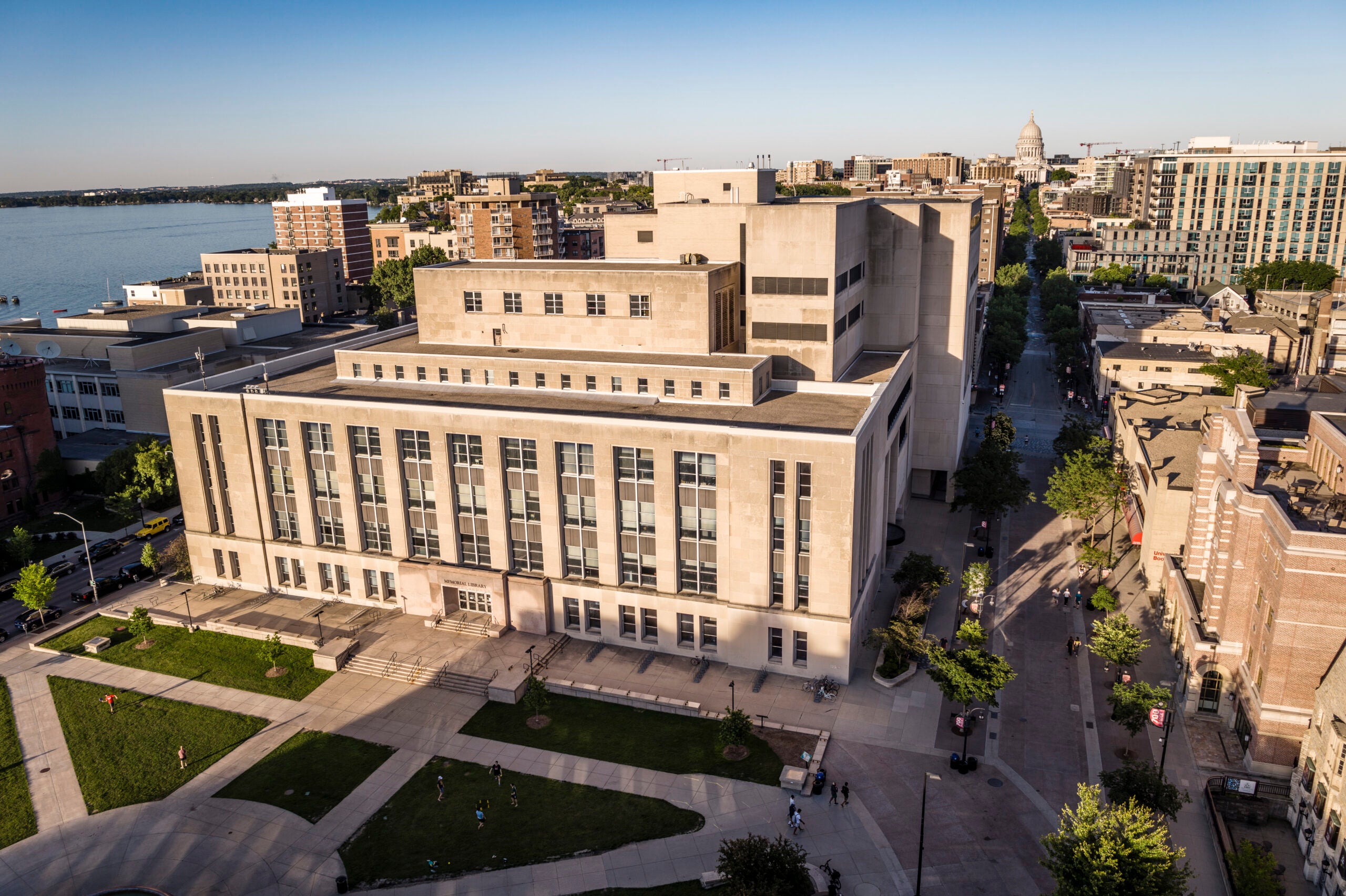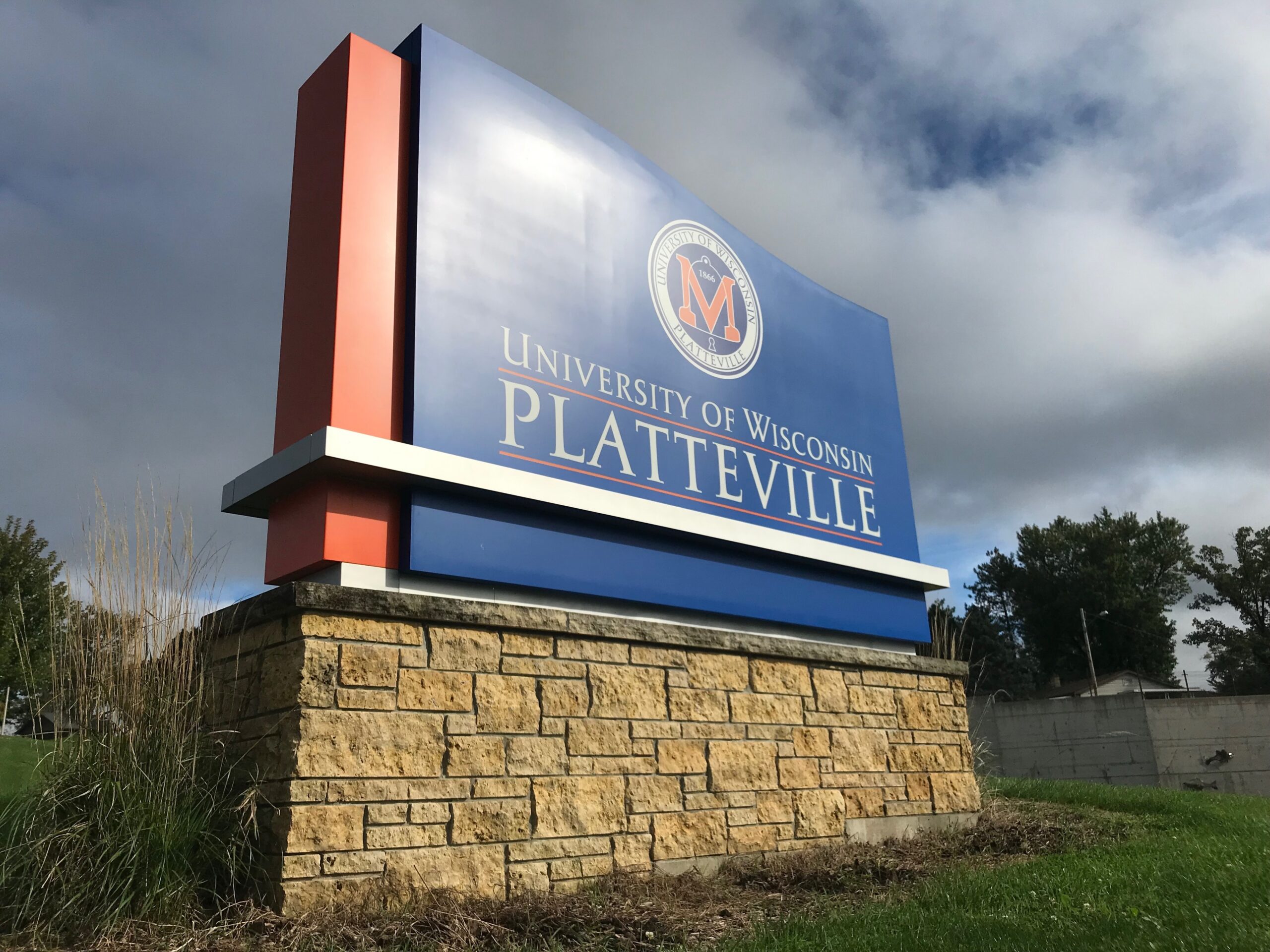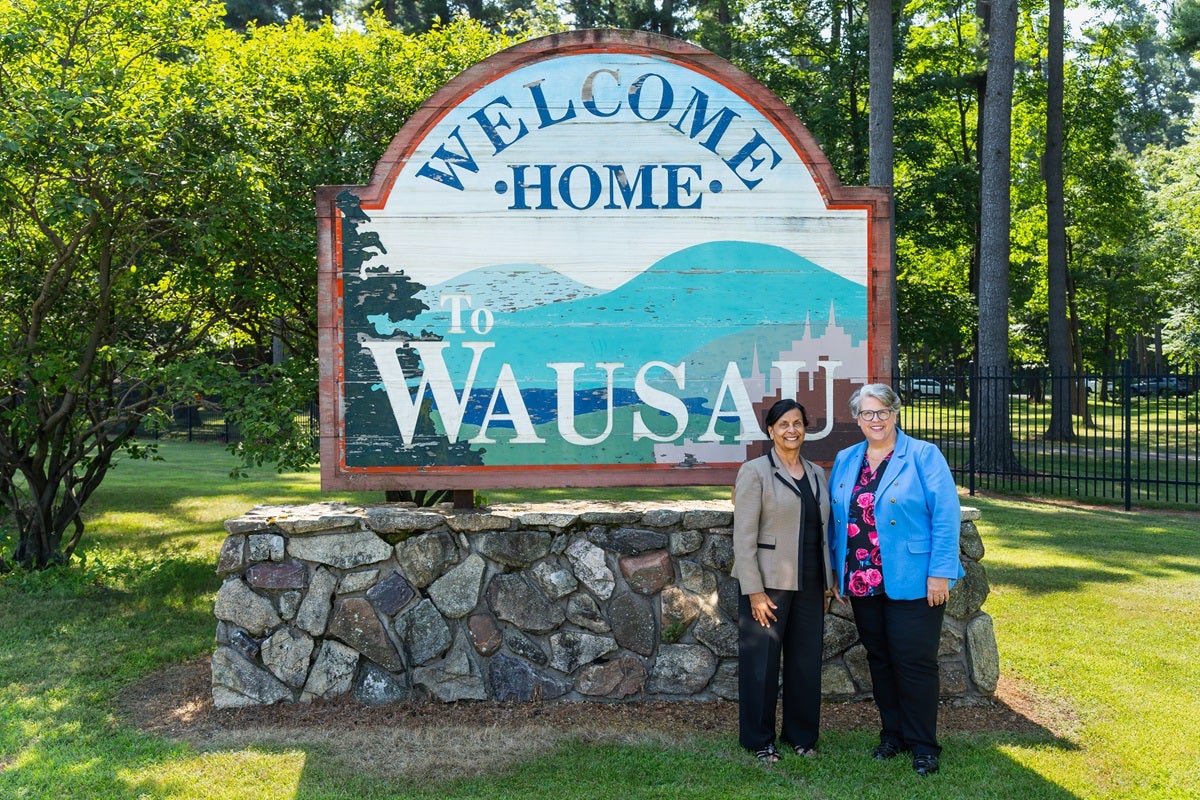Every University of Wisconsin System campus in the state has instituted mask requirements or expectations for individuals regardless of their vaccination status as the number of new coronavirus cases rises. The measures come amid an effort by Republican lawmakers to block COVID-19 restrictions at universities.
During the past two weeks, UW campuses around the state have issued a cascade of announcements regarding face masks. But the message has varied by institution with some saying students and employees can face punishment for not following mask requirements, while other UW campuses have hinted at a more voluntary approach by saying mask wearing is “expected” or “recommended.”
UW-Eau Claire, UW-Stout, UW-River Falls, UW-La Crosse and UW-Whitewater announced mask expectations. WPR asked communications staff at each of those universities whether students or employees would be disciplined for refusing to wear a mask, but none provided an answer. A UW-Stout spokesperson said university officials didn’t have any comment on the matter.
News with a little more humanity
WPR’s “Wisconsin Today” newsletter keeps you connected to the state you love without feeling overwhelmed. No paywall. No agenda. No corporate filter.
UW-Eau Claire Student Body President Jaden Mikoulinskii said she believes students understand that masks are necessary with a growing number of new COVID-19 infections in the state due to the delta variant.
“So students, of course, are a little frustrated in that they were really expecting to come back this fall, have everything be revitalized, going back to the quote, unquote normal,” said Mikoulinskii.
Mikoulinskii also said she thinks that while UW-Eau Claire is saying masks are expected rather than recommended, she believes the measure will be enforced.
UW-Milwaukee, UW-Madison, UW-Green Bay, UW-Superior, UW-Stevens Point, UW-Oshkosh, UW-Parkside and UW-Platteville have announced mask requirements for students and employees. An order issued on Aug. 10 by UW-Oshkosh Chancellor Andrew Leavitt said the campus human resources department, dean of students office and police department are authorized to enforce the order.
“Violations may result in employee discipline, student discipline citation and/or fined under UWS Chapter 18,” said the order.
UW-Stevens Point Student Body President Will Scheder agreed that students aren’t excited about the campus’ mask requirement coming back. But he said there’s hope the measure could keep the campus open.
“Obviously, nobody likes wearing a mask all the time, but I feel like students are OK with that restriction as long as it means they still get to have events on campus and have their classes be in person,” said Scheder. “I know a lot of students, myself included, struggled a lot with those online courses.’
But the UW-System’s various campus-wide mask requirements may face a battle in court.
On July 28, state Sen. Steve Nass, R-Whitewater, announced he and other members of the state Legislature’s Joint Committee for Review of Administrative Rules planned to order the UW System to submit all COVID-19 campus regulations to the committee for approval.
“Unfortunately, some chancellors in the UW System consider themselves mini-Andrea Palms not beholden to following state law and moving quickly to take advantage of the delta-variant hysteria to enact excessive COVID-19 mandates,” Nass said in a press release. “The Legislature should not drag its feet in utilizing the powers we have to prevent state agencies from abusing the statutory and constitutional rights of citizens as was done in 2020.”
The next day, UW System interim President Tommy Thompson, who served as U.S. Health and Human Services Secretary under former President George W. Bush, pushed back.
“Given my experience as a former United States Health and Human Services Secretary, I know the biggest threat to in-person classes this fall would be actions that strip the UW System of the tools it has so successfully used to date to address outbreaks and reduce the spread of COVID-19,” Thompson wrote in a press release. “Just as we have this past year, the UW System will continue to use its authority to take nimble and reasonable steps that enable us to keep our campuses open for the education students need, parents expect, and Wisconsin deserves.”
On Aug. 3, before most UW campuses had announced mask requirements or expectations, the Joint Committee for Review of Administrative Rules voted 6-4 to require the UW System to submit an emergency rule proposal with all COVID-19 safety measures and requirements by Sept. 2. That’s the same day fall semester classes start at most UW campuses. All Republicans on the committee voted in favor of the directive and all Democrats voted against it.
John Beauchamp is a UW-Whitewater graduate student and chair of the Wisconsin Federation of College Republicans. He said he’s against COVID-19 related restrictions on campus and stipulations that could keep some students from receiving their education.
“We really think campus administrators, they are unelected bureaucrats,” said Beauchamp. “Essentially, they aren’t accountable to any of the students that they serve. We think that legislators having oversight over any COVID rules put in place by universities would provide a lot more of a direct line to the constituency base.”
Wisconsin isn’t the only state where Republican legislators have been working to block public universities from continuing COVID-19 safety restrictions used since the start of the pandemic.
On Aug. 2, a group of 30 national higher education advocacy organizations issued a joint statement warning of “dangerous restrictions by states on COVID-19 public health measures” at public universities across the country.
“Some states forbid inquiries about an array of vaccinations, including COVID-19; ban vaccination requirements; block required COVID-19 surveillance testing; and restrict the use of evidence-based mitigation strategies, including masking. Many of these restrictions directly contradict CDC guidance,” said the joint statement.
Wisconsin Public Radio, © Copyright 2026, Board of Regents of the University of Wisconsin System and Wisconsin Educational Communications Board.







